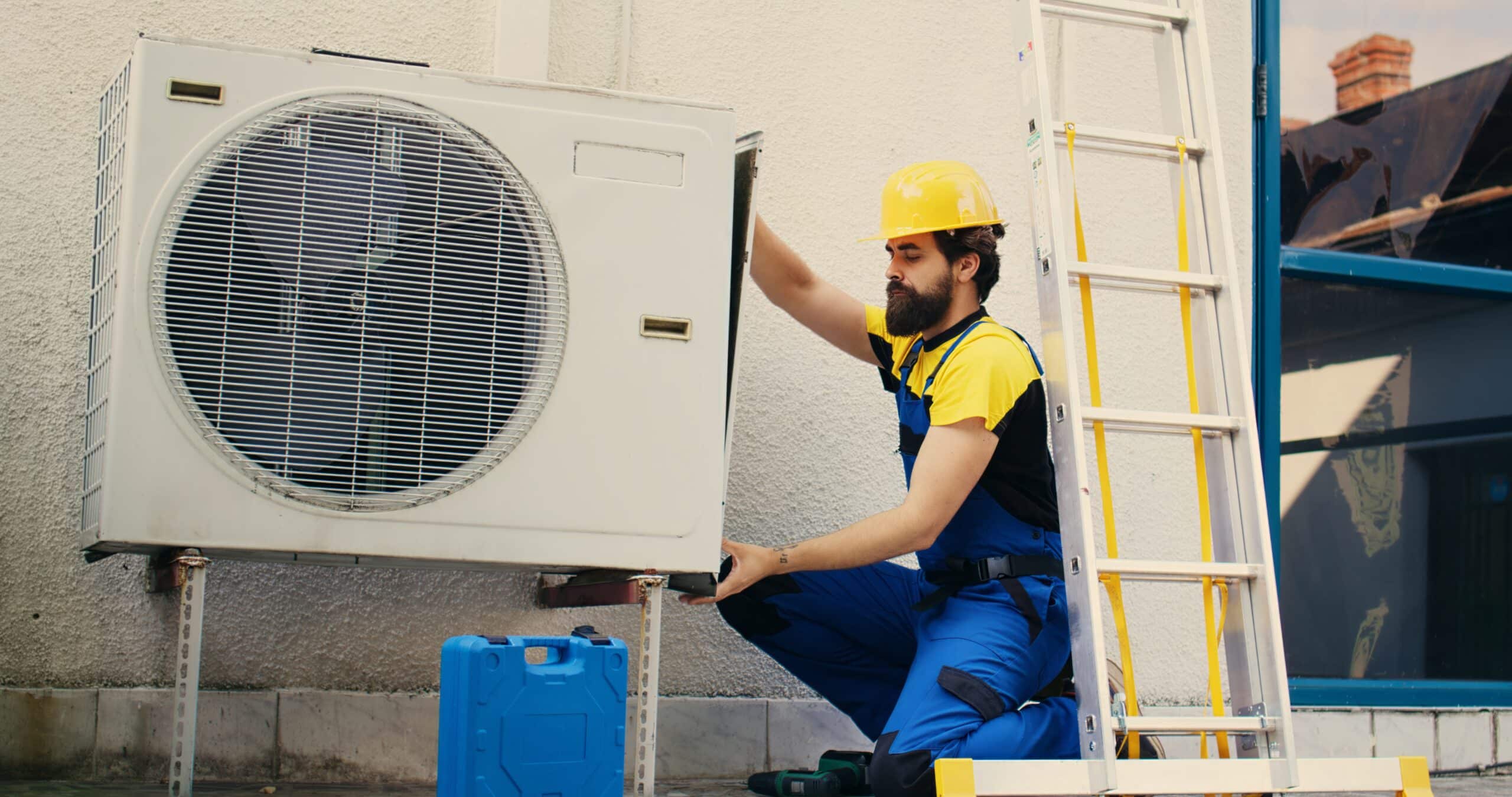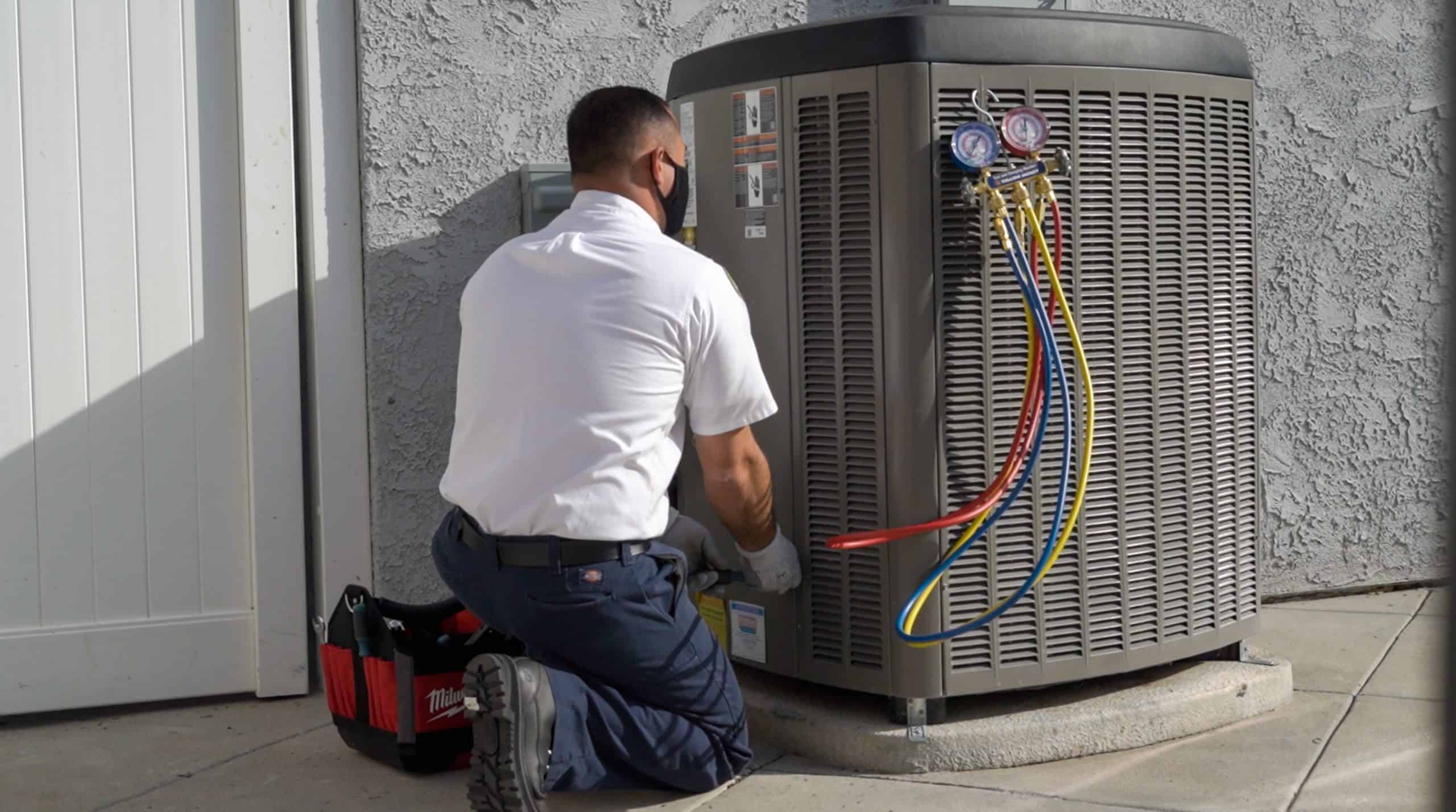How to Pick the Right A/c System for Your Needs
Choosing the ideal Cooling and heating system is an important choice that needs careful factor to consider of various variables. The myriad of system kinds readily available can complicate this process, leading one to ask yourself which course eventually leads to optimal comfort and effectiveness.
Assess Your Home Size
Assessing your home size is a critical initial step in picking the suitable HVAC system. The size of your home directly affects the heating and air conditioning ability needed for efficient climate control. An a/c system that is also tiny will certainly struggle to preserve comfortable temperature levels, causing enhanced energy consumption and use on the unit. On the other hand, a large system can result in brief cycling, poor moisture control, and ineffective operation.
To accurately evaluate your home dimension, measure the square footage of each room, considering variables such as ceiling elevation and the layout. Additionally, take into consideration the insulation high quality and the variety of windows, as these aspects influence thermal efficiency. Houses with open floor strategies might require different system arrangements compared to those with several split rooms.
Making Use Of the Guidebook J tons computation technique can offer a much more specific estimate of your cooling and heating needs. This approach make up numerous aspects, consisting of regional climate, solar gain, and tenancy patterns. By thoroughly evaluating these facets, you can make sure that your chosen cooling and heating system is appropriately sized, bring about improved convenience, power performance, and longevity of the devices.
Determine Your Spending Plan
Establishing your spending plan is a pivotal action in the HVAC system selection procedure, as it establishes the parameters for your options - DMAKS HVAC. An a/c system is a substantial investment, and comprehending your economic limits will help limit choices that fit within your methods
Begin by evaluating not only the preliminary acquisition cost yet also setup prices, which can vary dramatically relying on the intricacy of the project. Take into consideration recurring expenditures such as maintenance, repair services, and power intake. A system may show up budget friendly at first however can lead to higher prices in time if it is much less effective.
It is a good idea to allot a backup fund for unexpected expenditures that may develop during setup or preliminary system modifications (DMAKS HVAC). Furthermore, discover funding options or rebates that might be offered, as these can relieve the worry of ahead of time expenses
Eventually, having a clear spending plan allows you to engage with heating and cooling specialists much more properly, ensuring you obtain customized suggestions that straightens with your monetary goals and home requirements. By being diligent concerning your budget, you can make informed choices that boost comfort without endangering financial security.
Evaluate Energy Effectiveness
Power effectiveness plays a crucial role in the overall performance and cost-effectiveness of your a/c system. When selecting a system, it is important to consider its power effectiveness ratings, as these numbers directly influence your energy costs and environmental footprint. Try to find systems with a high Seasonal Power Efficiency Ratio (SEER) for cooling and a high Annual Fuel Utilization Efficiency (AFUE) score for home heating. Greater scores indicate greater performance, meaning more comfort for less energy usage.
Furthermore, consider the Power Star qualification, which indicates that the system fulfills strict effectiveness standards established by the Epa. Investing in a Power Star-rated cooling and heating system can cause substantial cost savings over time, specifically in locations with severe temperature changes.
Another element to assess is the system's dimension and capacity. An oversized or small system can lead to inefficiency and enhanced power prices. DMAKS HVAC. Appropriate sizing, frequently figured out with a Hands-on J load computation, makes certain that the system operates at optimum effectiveness


Consider Environment and Setting
When picking a HVAC system, it is important to think about the local climate and ecological problems, as these elements substantially affect the system's performance and effectiveness. Different areas experience differing temperature level extremes, moisture degrees, and seasonal adjustments, all of which impact home heating and cooling needs.

In addition, regional ecological variables, such as air quality and prospective allergens, must educate your choice. Solutions equipped with advanced filtration technologies can assist minimize contaminants and supply cleaner air. Additionally, consider the energy resources readily available in your location-- some a/c systems are a lot more reliable when powered by gas or renewable energy resources.
Eventually, aligning your cooling and heating system option with your local environment and ecological considerations will lead to enhanced convenience, improved effectiveness, and lower power expenses.
Explore System Kind and Functions
As home owners look for to enhance comfort and performance, checking out the numerous kinds of heating and cooling systems and their unique attributes comes to be essential. The read this post here primary kinds of a/c systems include central air, heatpump, ductless mini-split systems, and heating systems. Each system uses distinctive advantages tailored to different needs and preferences.
Central air systems give consistent cooling throughout a home, making them excellent for bigger areas. Warm pumps act as both heating and cooling down services, making use of power to move warmth, which can result in lower energy costs. Ductless mini-split systems are becoming significantly popular due to check these guys out their versatility and convenience of setup, permitting homeowners to manage the temperature in individual spaces without extensive ductwork.

Conclusion
Finally, choosing the suitable heating and cooling system requires cautious consideration of numerous aspects, consisting of home dimension, budget constraints, energy performance, regional climate, and offered system kinds. A comprehensive assessment of these address elements guarantees optimal comfort and cost-effectiveness. By following an organized strategy, homeowners can make informed choices that straighten with their certain needs and choices, eventually bring about improved indoor air quality and energy savings.